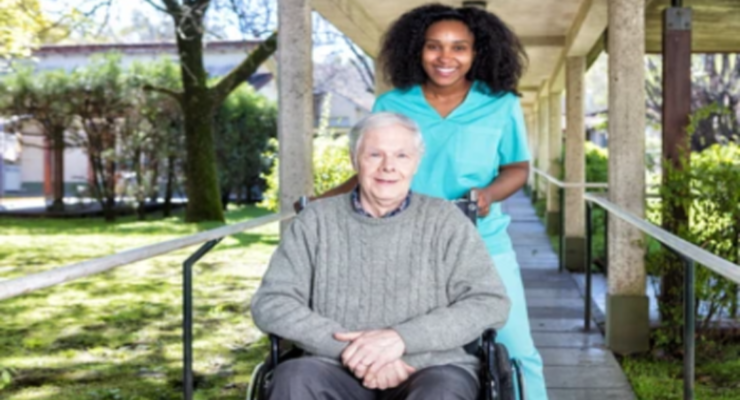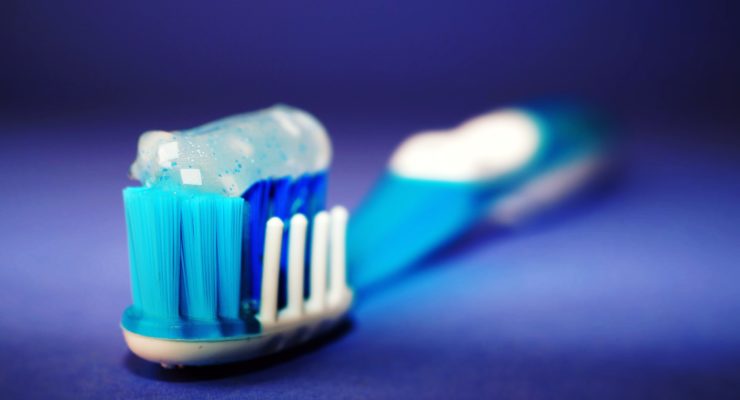Oral Public Health Specialist
North Somerset Council
Public Health, Post Point 11, Castlewood, Tickenham Road, Clevedon, BS21 6FW
Taking care of another’s teeth
In the day to day, please ensure those you care for have their teeth brushed, dentures cleaned and are given access to low sugar snack alternatives.
Taking care of teeth…
Having a clean healthy mouth helps with speaking, eating and smiling. Not brushing teeth, gums and dentures daily can lead to discomfort, pain and affect general health. Carers play a vital role in helping vulnerable adults with their mouth care.
Tooth decay is caused by bacteria releasing acid when it consumes sugar. Therefore the main ways to prevent tooth decay are, to eat less sugar, and to clean teeth twice a day.
Saliva helps to reduce the effects of the acid, but at night the mouth doesn’t make as much saliva. It is important that the last thing people do before bed is brush their teeth and that they don’t eat anything afterwards.
Toothbrushing
Teeth should be brushed twice a day, before bed and at one other point. Brushing teeth and gums removes the sticky film of bacteria, called plaque. Not brushing can lead to bleeding gums and gum disease. Continue to gently brush teeth even if the gums bleed. If the bleeding continues, please contact a dentist.
When cleaning teeth and gums you will need:
- Toothpaste containing fluoride
- Soft small headed toothbrush*
- Gloves
- Towel
*Some people have difficulty brushing their teeth and may benefit from using a different kind of brush. A three sided brush can brush all 3 surfaces at once, so is helpful if manual dexterity is limited, but also means that the task can be completed more quickly. An electric brush with a rotating action supports those with less dexterity to apply the circular motion to their teeth. Toothbrushes can be adapted for a person, so ask the Dental Team for advice if needed.
Preparation
A lot of people can brush their own teeth and gums with your help but if the person needs extra help you should:
- Explain what you are going to do.
- Make sure they are comfortable, and their head is supported.
- Take out dentures before brushing.
- Pull back cheek and lips to see teeth.
- If the person allows, clean between the teeth with floss or interdental brushes
- Push a pea sized amount of toothpaste into the bristles
Find a comfortable sitting or standing position for you. You may prefer being directly in front, or standing behind and a little to the side of the person.
Brushing
- Starting from the back of the mouth, on the outside surface near the cheek;
- Place the brush where the tooth meets the gum
- Brush with small circular motions 1 or 2 teeth at a time all the way to the middle
- Do this for each of the four quarters of the mouth
- Then move to the inside surface, near the tongue
- Place the brush where the tooth meets the gum
- Brush with small circular motions 1 or 2 teeth at a time all the way to the middle
- Do this for each of the four quarters of the mouth
- Finally brush the chewing surfaces of all the teeth
- Brushing the tongue will help remove bacteria.
- Ask the person to spit out excess toothpaste if they can, but try not to rinse after brushing as this will wash away the fluoride.
Denture Care
Even if someone has no teeth, it is important to clean food and bacteria from their mouth every day. Use a soft brush to clean the gums, cheeks and tongue. To look after their dentures, remove the dentures once a day to check for any cracks, chips or any looseness, and check that the person’s name is marked on the denture. See the video on this page for guidance on cleaning the dentures. Tell the dental team if there are any problems. You could do these checks at bedtime as it is best to leave dentures out at night, stored dry, in a container which should be cleaned daily and marked with the person’s name. Rinse dentures well before fitting them in the mouth.
If a person prefers to take their dentures out to eat, this may be a sign that they are not comfortable, so talk to them about this and if they would like you to discuss with the dental team.
Dentures must be kept clean to avoid mouth infections. You should attend training or shadow an experienced carer in this task before attempting to do it alone.
Nutrition and Hydration
The Enhanced Health in Care Homes framework states “Every person’s hydration and nutrition should be reviewed regularly and included in their care plan.” ( 4.5.2.a)
It is no surprise that watching what we put in our mouths, will make a different to how healthy it is. This means sugar, tobacco and alcohol as all are leading culprits in oral diseases, including tooth decay, gum disease and mouth cancer.
Oral health is affected by sugar loving bacteria, which eats the sugar left in the mouth and as it does so, releases acid. This acid decays teeth and damages soft tissue in our mouth. Therefore, eating food that is low in sugar and limiting the number of times we consume sugary foods and drinks, will significantly reduce the risk of oral diseases.
Snacks
If those you care for like to snack through the day, consider ways to encourage low sugar and low acid (“tooth safe” snacks) such as bread sticks, raw vegetables or cheese and crackers, with water or milk. Saliva in our mouths helps neutralise the acid produced by bacteria – but the number of times our mouth can re-neutralise itself each day is limited. On-the-whole, sugary treats are OK for adult teeth alongside three meals and on two other occasions during the day. Bare this in mind for those who have sugar in their hot drinks or sip on sugary soft drinks throughout the day.
Medicines and Supplements
For those residents who are on frequent or long-term medicine prescriptions, consider liaising with GPs and pharmacies to request that they receive a sugar free version. This will reduce the number of times their mouths contact a sugary substance and will therefore reduce their risk of oral diseases.
Some people may be advised to take food supplements or drinks that cause tooth decay. For these residents consider introducing straws or sip feeds with sugary drinks then rinse mouth with water afterwards. Also, ask the dentist about toothpaste with extra fluoride as this will help the mouth to protect the teeth against decay.
Hydration
Drinking is important for overall health but particularly important for the mouth. Water is the best drink for teeth as well as for hydrating the body. Over the course of the day bacteria can build up in the mouth and drinking water can help saliva replenish and do its job of bringing the mouth to a normal PH level. As it isn’t acidic, it has no chance whatsoever of damaging teeth unlike other soft drinks. Green and black tea is similarly good (providing no sugar is added), as tea is a natural source of fluoride which helps strengthen tooth enamel.
Taking Care of Your Teeth; for the busy care worker
“Brush your teeth” “Eat less sugar” What’s the fuss about? And why should we look after our teeth? Come and find out in this workshop!
In this workshop we will attempt to answer all these questions and more, taking you through where mouth problems come from and how best to protect your teeth and gums from problems in the future. We will cover the causes of diseases, how these can effect your general health, ways to look after your mouth and tips for doing this around your busy work life.






